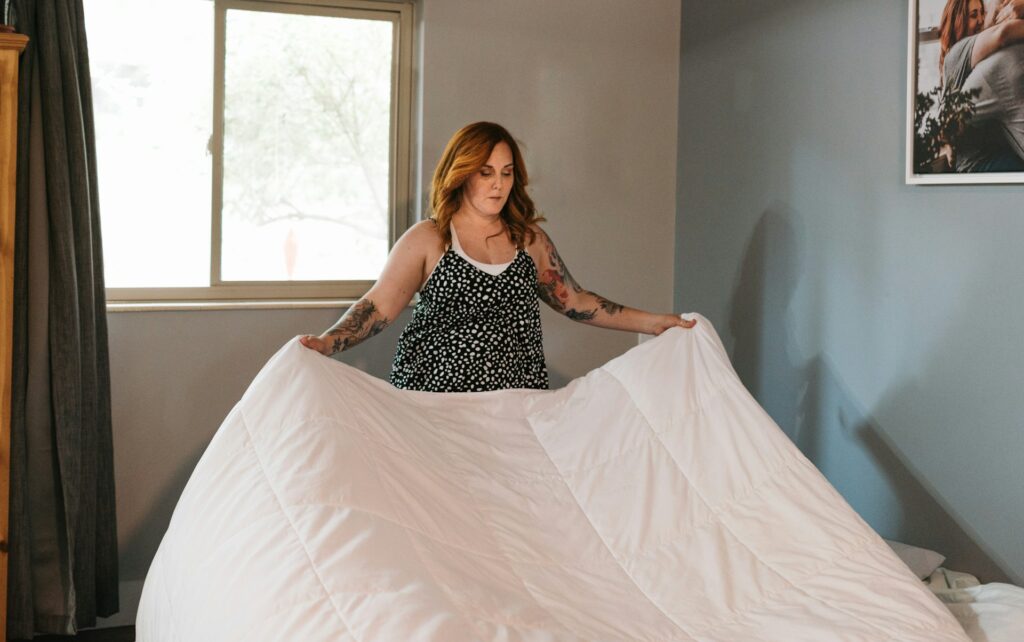There are little things people do in their day-to-day lives that they don’t think twice about, but they make a big difference.

Whether to their mental or physical health, their productivity, or even their basic levels of happiness, certain habits really impact the kind of days people have and the lives they live long-term. Here are just some of the overlooked (and rarely even thought about) things that can brighten a person’s day, even if they don’t think twice about them. You might want to add these to your own routine if you haven’t already.
1. Saying good morning to people

It’s easy to ignore people in the morning, especially when you’re tired, distracted, or not in the mood for small talk. However, just saying “morning” to someone nearby creates a bit of human connection without any effort. It breaks that weird silence and makes things feel a bit less cold.
It also changes the way people respond to you. Over time, these small acknowledgments build up. You’re more likely to get help when you need it, conversations feel less awkward, and you just feel more like part of the world instead of floating through it solo.
2. Drinking water before coffee

This one sounds boring, but it makes a difference. A glass of water before coffee in the morning helps your brain and body actually wake up, instead of just masking the tiredness with caffeine. Most people run around dehydrated and don’t even realise that’s part of why they feel off.
It doesn’t mean skipping the coffee—just putting water first. You’ll feel more alert, less jittery, and probably avoid that early afternoon crash. It’s one of those small habits that supports everything else without needing a big routine change.
3. Putting your phone in another room while you sleep

Even if you’re not on it late at night, just having your phone by your bed messes with your head. It’s the first thing you reach for in the morning and the last thing you look at before bed, which isn’t great for your focus or sleep.
Leaving it in another room, or across the room, makes your brain switch off better at night and gives you a bit of breathing space in the morning. You get to wake up as yourself instead of diving straight into messages, news, or whatever chaos is waiting on your screen.
4. Tidying one small thing daily

Big cleaning sessions can feel overwhelming, but doing one little thing a day makes your space feel manageable. Whether it’s clearing the table, putting laundry away, or wiping the counters, it gives you a small win and keeps mess from building up.
In the long run, it just makes life easier. You’re not scrambling to clean when someone’s coming over, and you’re not dealing with five jobs at once. It also makes your home feel a bit calmer, which can actually help your stress levels stay down too.
5. Keeping promises to yourself

People talk a lot about keeping promises to other people, but doing what you said you’d do for yourself matters just as much. Skipping the walk, the early night, or the break you promised yourself adds up and starts making you feel a bit off with yourself. Following through, even on small things, builds confidence. You feel a bit more in control, a bit more grounded. You don’t need to be perfect or super productive—it’s just about showing yourself that you mean what you say.
6. Saying no without over-explaining

If you’re someone who always feels the need to justify yourself, this one’s a game-changer. “No, I can’t make it” is a full sentence. You don’t have to apologise ten times or list every reason why—it just drags things out and makes it harder to stick to your decision.
Getting comfortable with a straight-up no feels weird at first, but it saves you loads of mental energy. People usually take it better than you expect, and the more you do it, the easier it gets. You don’t owe everyone a long explanation for choosing what works for you.
7. Finishing things completely

Half-done stuff is sneaky—it clutters your brain without you noticing. Whether it’s laundry still in the basket or a task you’ve started but left hanging, it leaves you with this low-level “ugh” feeling that just follows you around.
Getting into the habit of actually finishing something, even if it’s small, helps clear that mental weight. You don’t need to do everything perfectly—you just need to close the loop. It’s a satisfying feeling that builds momentum without making life harder.
8. Talking to yourself like you’re not the enemy

The way you talk to yourself matters more than people like to admit. If you’re constantly putting yourself down or replaying your mistakes on a loop, it takes a toll. Most people wouldn’t speak to a mate that way, but somehow it feels normal in your own head.
Being a bit nicer to yourself doesn’t mean being soft or letting everything slide. It just means not making your own brain a hostile place to live. It’s a small change, but it changes how you handle stress, setbacks, and the stuff life throws at you.
9. Getting outside once a day

It doesn’t have to be a long walk. Just standing outside, breathing in real air, or seeing something that isn’t a screen helps. Being indoors all day messes with your head, even if you don’t realise it in the moment. Getting outside breaks up the day, resets your brain a bit, and helps with sleep, energy, and even your mood. It’s such a simple thing to skip, but once it becomes a habit, you notice how weird it feels when you don’t do it.
10. Noticing what actually went okay

It’s easy to focus on everything that went wrong—what you didn’t get done, what annoyed you, what felt off. But taking a second to notice something that went fine—or even mildly good—can stop that downward spiral before it starts. You don’t have to turn into someone who’s constantly “grateful for everything.” Just clocking one thing that didn’t suck can help your brain stay balanced. It’s a way to stop your day from being defined by its worst moment.
11. Spending less time explaining yourself

You don’t have to talk someone into understanding your choices. Saying what you mean once is usually enough, and if someone keeps pushing, that’s not on you. Over-explaining often makes things more confusing, not clearer. Once you start letting your words stand on their own, things get quieter in your head. You stop rehearsing conversations or worrying how you came across. It’s not about being cold—it’s about trusting that what you said was enough.
12. Letting yourself get bored sometimes

Boredom feels uncomfortable, but it’s not the enemy. If you fill every quiet moment with scrolling, podcasts, or background noise, your brain never gets a chance to wander or decompress. That’s often when the good ideas show up—or when you realise what’s actually bothering you.
You don’t have to schedule “boredom time,” but just resisting the urge to fill every gap with stimulation helps more than you’d think. It’s not always exciting, but it makes your thoughts feel less scrambled and your attention way easier to manage.


